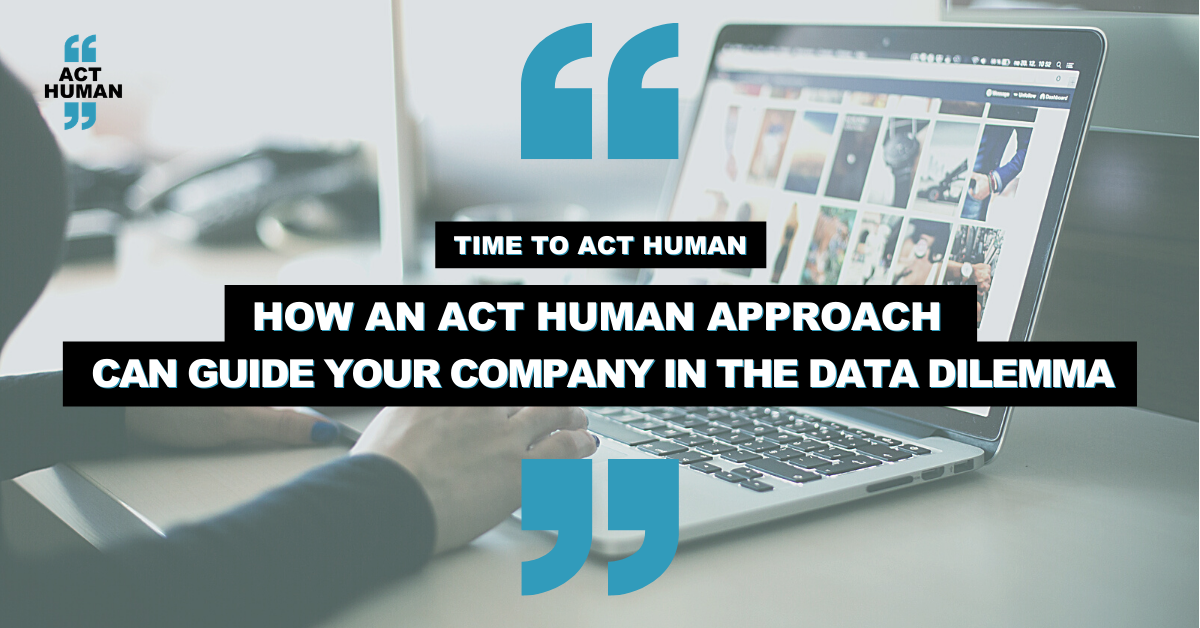15.03.21

15.03.21

“Data is the new oil”, a well-grounded cliché generously used by marketeers. Data nurtures a personalized customer experience. But what happens when data is solely used to sell targeted ads to other companies instead of being used to enhance the customer experience? Or what if this data is used to create polarization and even orchestrate genocides – another parallel between data and oil?
With the coming iOS 14 update, Apple will both enhance its users’ data privacy and educate them about how their online behaviour is continuously being tracked by companies like Facebook. This announcement led to quarrel between both GAFA members, publicly attacking each other in the media. Of course this has everything to do with business philosophies that are diametrically opposed to each other. Apple is a lifestyle brand and part of the lifestyle Apple sells, is users having more control over their privacy. Opposingly, Facebook is a data company. The more data it collects on its users, the more effectively it can sell targeted ads to other companies. But all of this comes with a cost. To paraphrase Tim Cook, the end result is that you are no longer the customer, you are the product.
This discussion is however nothing new. With the revelations of Cambridge Analytica in 2018, the media, governments and legal authorities drew a lot of attention to data privacy and how dangerously data can be used. Despite the media attention, Facebook users were not bothered enough to close their Facebook accounts. Facebook got away with a fine and some brand damage: the actual impact was rather limited for the data giant.
Even though people state they are concerned about their privacy, their behaviour reveals the opposite: a phenomenon referred to as the privacy paradox. Users prefer having “free” access to platforms in exchange for their data over paying a fee to socialize with their friends and watch funny cat videos or memes. And to be fair: at Callebaut Collective, we don’t think about our privacy either while watching funny cat videos on Facebook.
We do however believe it is both the governments’ and businesses’ duty to preserve data privacy by default and educate citizens on how their data can be (mis)used. As Apple now takes on a strong position in the privacy debate, other companies will probably follow. Safari already prevents third party cookies and Google, another member of the GAFA clan, plans to end support for third-party cookies in its popular Chrome browser by 2022. This means that by 2022, the world’s most used internet browsers will not allow third-party cookie tracking. While rumours were that Google was searching for other alternatives to track online behaviour, Google recently stated that it will no longer track individual users at all while browsing the web as they do not meet rising consumer expectations for privacy, nor will they stand up to rapidly evolving regulatory restrictions. Such a cookieless and trackless environment might be another step towards a post-privacy world where consumers can safely reap the benefits of smart data usage.
This does of course not take away that businesses should capture relevant data that help them service their customers. Data allows us to drive more personal relevance for audiences by anticipating human needs, reducing noise and unwanted clutter. Data will undoubtedly remain the key driver for a personalised customer experience and service excellence. Think of energy suppliers advising customers to buy a new washing machine and even offering them a discount when their smart energy meter detects an abnormal amount of energy being wasted by their old washing machine – yet another example of XaaS, referred to as Data as a Service.
Anno 2021, data remains a challenge for a lot of organizations. In the cookieless world of tomorrow and increasing data privacy measures, companies need to climb up the data maturity curve. To do so, business leaders should ask themselves: which data philosophy do I want to pursue? Do I want a business that serves my customers? Or one that takes advantage of my customers to serve my business? Even though you could argue that both Facebook and Apple have a legitimate argumentation for their business models, we’re convinced that data should serve to act human. To support building human customer relationships by better understanding the customer, by anticipating how customer needs and behaviours might evolve in time due to contextual influences. By tapping into these insights through relevant solutions supported by digital tools, innovative technologies and data… eventually leading to meaningful customer experiences.
To close the loop, we would like to end with Tim Cook’s exact words:
"We believe that ethical technology is technology that works for you (the customer). It's technology that helps you sleep, not keeps you up. It tells you when you've had enough. It gives you space to create or draw or write or learn, not refresh just one more time."